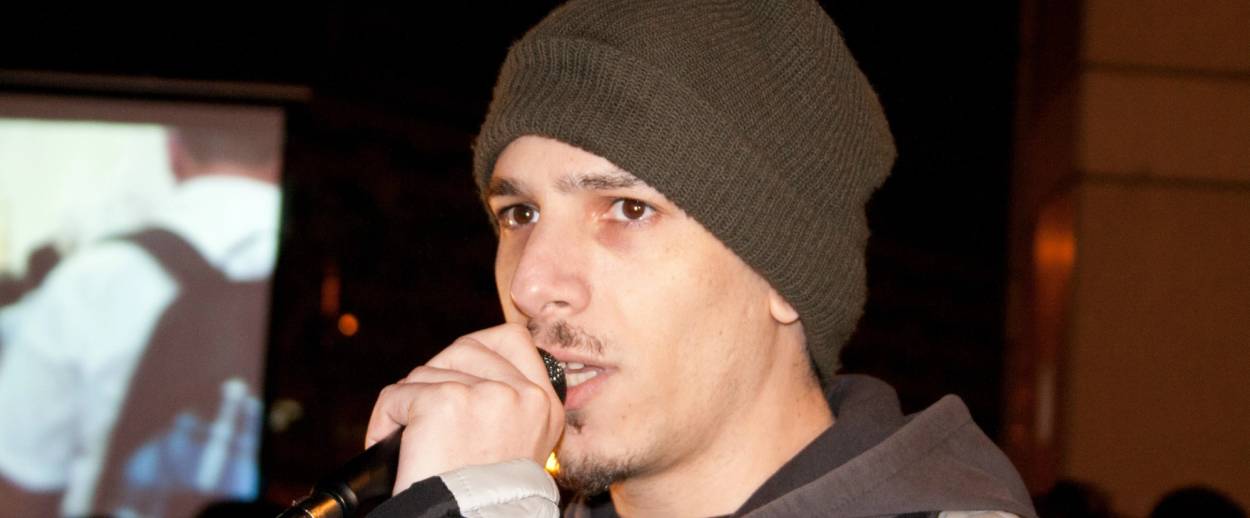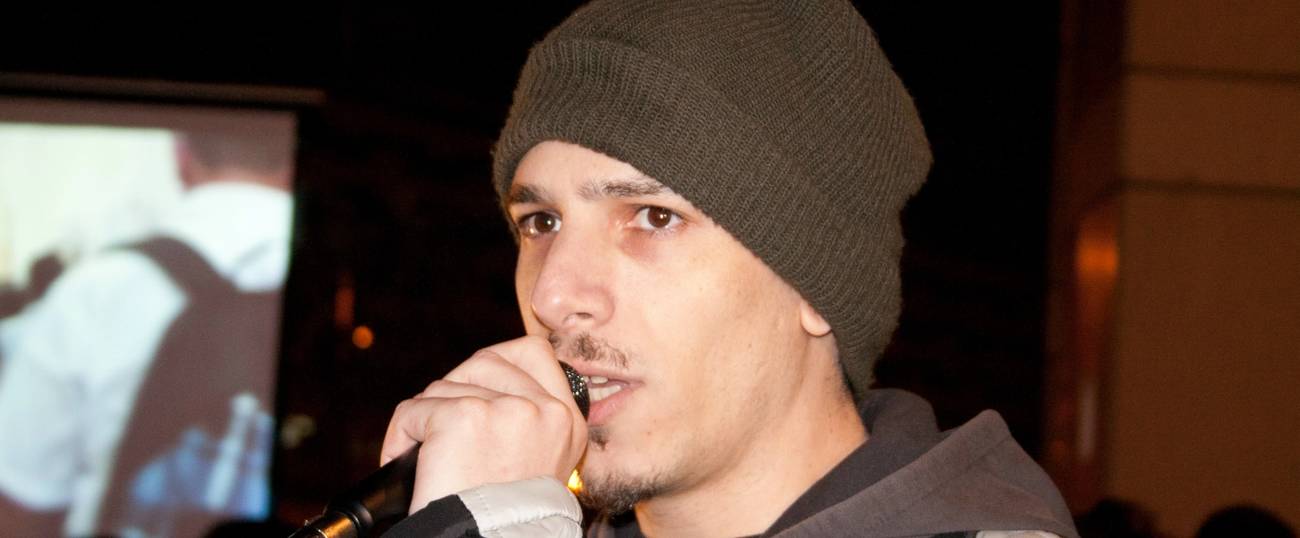How the Beastie Boys Invented Israel’s Accidental Rap Star
The Alef Bet of Hebrew Hip Hop: Kwami de la Fox




If you turned Eyal Friedman’s life story into a biopic, it would probably be terrible, the kind of treacly nonsense that civic-minded critics like to praise in think pieces but no one really enjoys. Orphaned of his mother at 6, the young boy grows up with only his father, his grandfather, and music to nurture him. He joins the Israel Defense Forces and finds his way to Galei Tzahal, its legendary radio station. He persuades the stiffs to let him host a late-night show dedicated to hip-hop, which the squares in Israel know very little about. And then, in 1995, the Beastie Boys play Tel Aviv, and Friedman, ecstatic to see his idols play live, records a promo that riffs on their song, “So What’cha Want.” The Beasties hear it and they love it so much they include it as a hidden track on their next EP. Overnight, Friedman is transformed: He becomes Kwami de la Fox, a politically minded and socially conscious rapper who sings about corruption, oppression, and other forms of injustice.
How boring does that sound?
Except, somehow, Kwami makes it all groove. His first album, released in 2001, combined great beats with raucous bouzouki music, a wedding of Mediterranean music and hip hop that has since become popular but which, at the time, was almost unprecedented.
Even as he matured and devoted himself more deeply to meaningful lyrics—“I solemnly believe,” goes one typical line, “that leaders on all sides gain when they say war is in the interest of their nation”—he never lost his childlike enthusiasm. He delivers his verses like a teenager on a tape-recorder, alone in his room, having fun without thinking that anyone else would ever listen. And this un-self-aware giddiness makes sentiments that would be groan-inducing coming from anyone else go down like a party anthem.
And if you need further proof that Kwami is one sly fox, take heart knowing that Rami Fortis, the father of Israeli punk and the coolest Jew this side of Joey Ramone to pick up a microphone and howl has, in recent years, teamed up with the rapper to record the sort of music you’d hear only in Israel, hip-hop rock hybrids that make politics sexy and fun:
Liel Leibovitz is editor-at-large for Tablet Magazine and a host of its weekly culture podcast Unorthodox and daily Talmud podcast Take One. He is the editor of Zionism: The Tablet Guide.